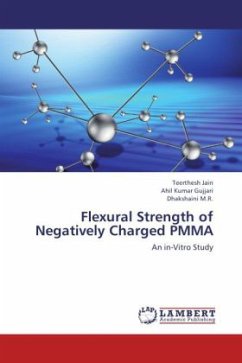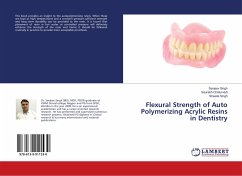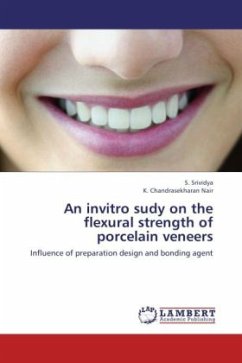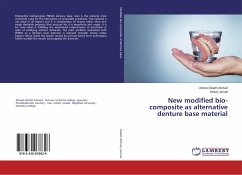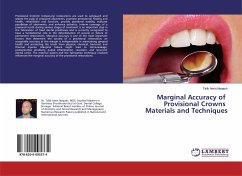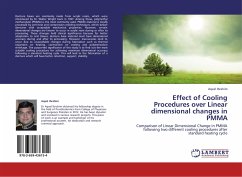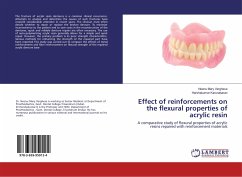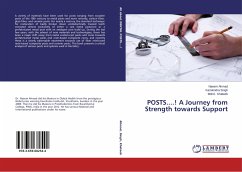Synthetic acrylic resins have a long, clinically proven history of use for dentures since they exhibit adequate physical, mechanical, and esthetic properties; however, they are susceptible to microbial adhesion, leading to denture stomatitis, which is the most common infectious disease affecting the palatal mucosa, and is highly prevalent in denture wearers . Polymeric biomaterials have an inherent advantage in their capacity for modification. Negatively charged denture base materials have been suggested to prevent adhesion of Candida and to reduce the development of denture induced stomatitis. Incorporation of metahacrylic acid in PMMA denure base resins prevents adherence of Candida albicans.Taking all the above factors into consideration the present study, was done to compare and evaluate flexural strength of negatively charged polymethylmethacrylate (PMMA) with different concentrations of methacrylic acid.

